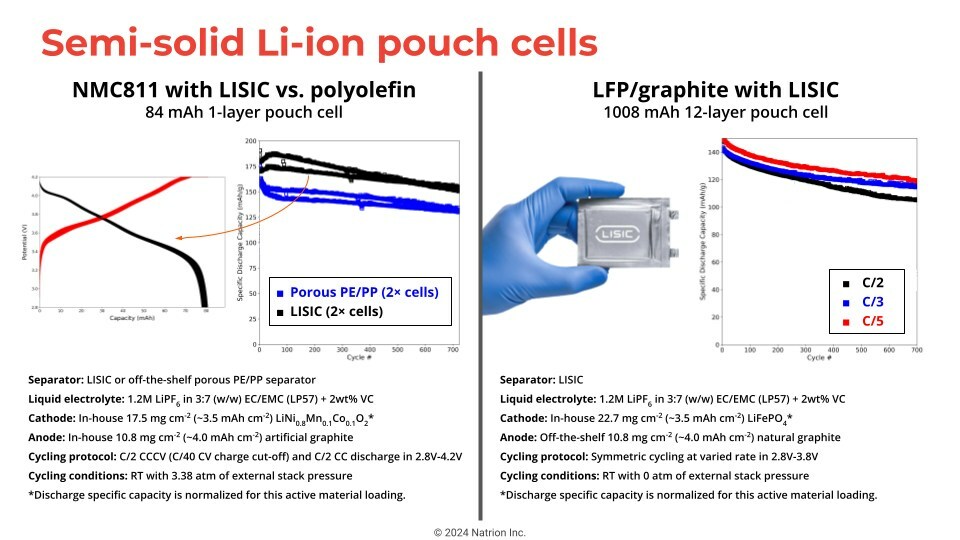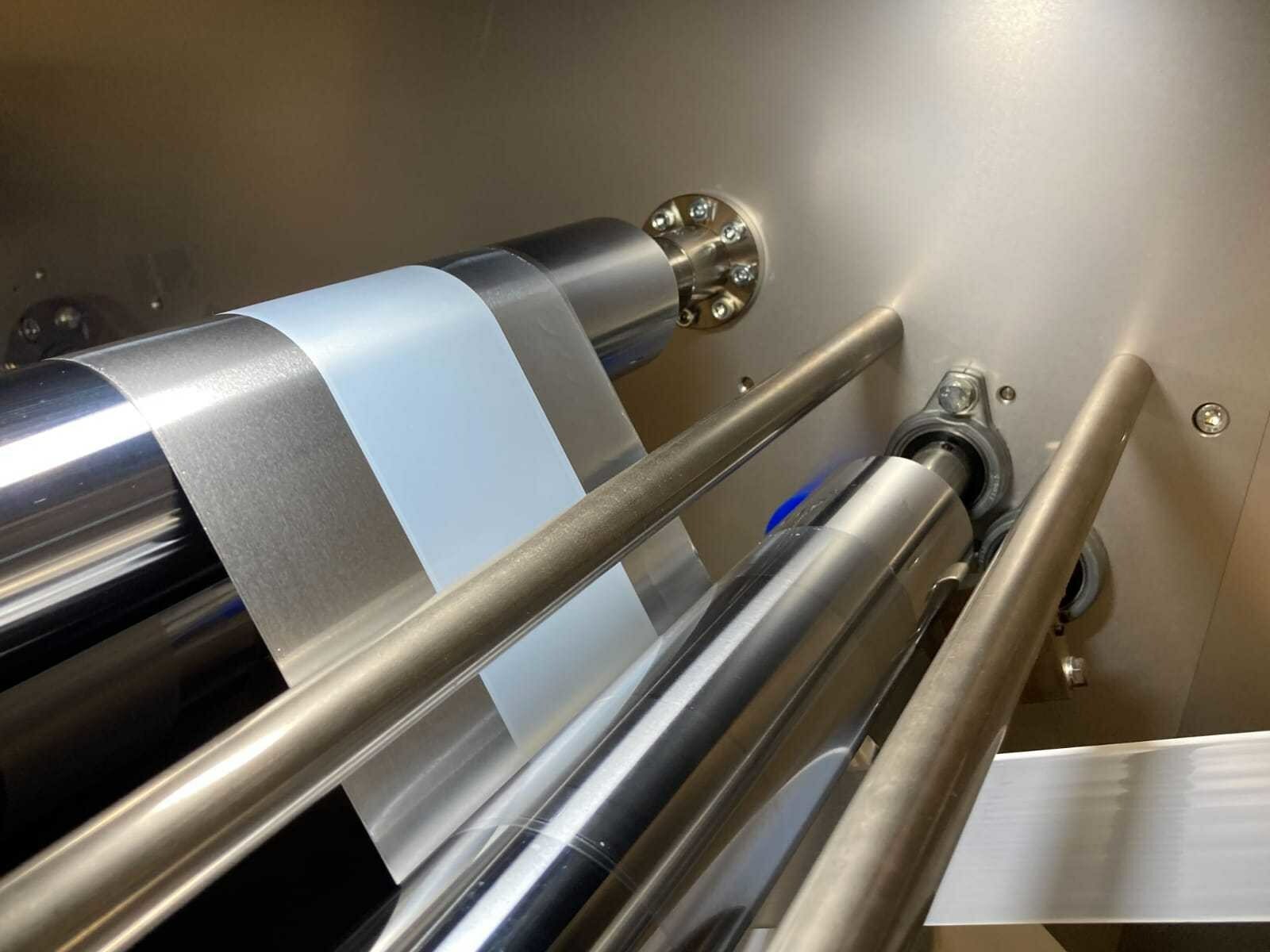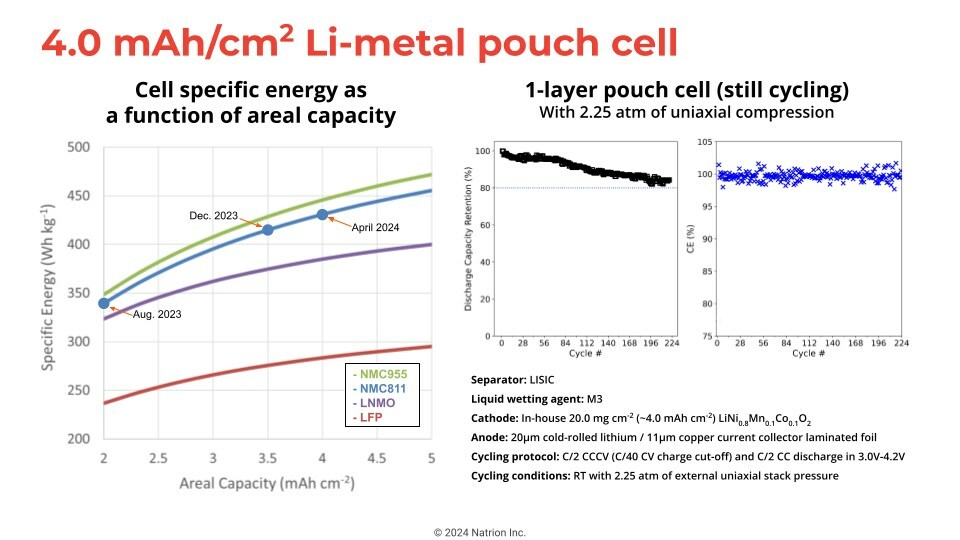On August 16th, Natrion, a U.S. manufacturer of solid-state battery components, announced that it has secured two contracts with the U.S. Air Force.
Natrion has been selected for two Small Business Innovation Research (SBIR) contracts with the U.S. Air Force: the first phase with the Air Force Global Strike Command (AFGSC) and the second phase with the Air Force innovation department AFWERX.
These two new government contracts are worth over $1.5 million. Prior to this, Natrion had already received two additional SBIR contracts from the Air Force innovation department AFWERX and a Small Business Technology Transfer Research (STTR) contract from the Naval Air Systems Command. This indicates that Natrion is very likely to establish a long-term cooperation with the U.S. Department of Defense (DoD) in the future.
Natrion's co-founder and CEO, Alex Kosyakov, stated that the products to be delivered to the U.S. Air Force and the main contractor will have quality and performance that will aid in the direct transfer of applications to other areas served by the company, such as solutions for consumer electronics, electric vehicles, eVTOL, and stationary energy storage systems.
For its first contract, a new phase of the Air Force Global Strike Command (AFGSC) project, Natrion will focus on providing customized solid-state lithium metal batteries with low-temperature operability and shape change capabilities. These new batteries will pair Natrion's patented solid-state electrolyte separator—Lithium Solid Ionic Composite (LISIC)—with the company's developed thin lithium metal anode to achieve mechanical flexibility, thus being able to adapt to the irregular and aerodynamic shape requirements of different systems and platforms, in support of the U.S. Air Force’s efforts in upgrading and replacing aging assets with new advanced electronic equipment.
LISIC, Lithium Solid Ionic Composite
In the company’s second contract, Natrion and its subcontractors and partners will work to enhance the durability of tactical electronic devices and directed energy weapons. The lithium metal batteries based on the solid-state electrolyte separator LISIC offer up to 50% more energy density than the current state-of-the-art rechargeable lithium-ion batteries while also mitigating thermal runaway.
Simultaneously with these contract signings, the company also appointed a new Chief Operating Officer (COO), John Fox, who previously served as the founder and business development director of the British battery manufacturer AMTE Power and was selected for the Northrop Grumman Accelerator program of the U.S. Department of Defense. With this, Natrion has joined the 2024 Northrop Grumman Technology Accelerator program. Selected startups and small businesses can participate in an 8-week accelerator program, which is provided by Northrop Grumman Aerospace Systems and FedTech with guidance, education, and business development mentorship. Entrepreneurs participating in the program will gain access to FedTech's extensive network of U.S. Department of Defense, venture capital firms, and integration partners, aiding in achieving business goals and the resources needed for development. John Fox will focus on leading Natrion's commercialization strategy, enhancing the manufacturing process of the company's patented solid-state electrolyte separator (LISIC) and other products, and expanding the customer base.
In April of this year, Natrion made significant technical and commercial progress in the patent components of lithium-ion and lithium metal batteries. Its lithium metal battery (LMB) pouch cell prototype broke through an energy density of 430 Wh/kg and won the American Edison Award on April 18th. These technological breakthroughs are expected to promote the development of solid-state battery technology.
The LMB's ability to achieve a technological breakthrough is supported by key technical support from Natrion's patented solid-state electrolyte separator (LISIC). This separator uses metallic lithium as the anode, offering higher energy density and cycle life. Natrion's LMB battery prototype maintains the charge/discharge rate while increasing the area capacity, reaching 4.0 mAh/cm², and can cycle over 200 times at ambient temperature with only 34 psi of external pressure. Many alternative solutions for LMB require over 200 psi to operate, which significantly complicates the design and construction of electric vehicle battery packs and hinders their use in consumer electronics.
Key features of Natrion's LMB batteries include:
1. M3 Liquid Wettability Agent: While LISIC is a solid-state electrolyte moving ions between electrodes, Natrion's patented M3 is a non-flammable liquid that facilitates ion movement inside the electrodes and contributes to robust LMB charge/discharge performance at lower pressures.
2. LISIC Quality Improvements: Natrion's first-generation LISIC separator is now only 12 micrometers thick, improving cell efficiency and charge transfer speeds.
3. Unparalleled Thermal Stability: LMBs based on LISIC/M3 have been shown to remain benign even when fully charged and subjected to temperatures well above the melting point of lithium metal (~350°F).
Additionally, Natrion's LISIC separator can enhance the performance and flame retardancy of current nickel-manganese-cobalt (NMC) and lithium iron phosphate (LFP) lithium-ion batteries. Lithium-ion batteries with LISIC separators have demonstrated a 10-15% increase in discharge energy capacity compared to batteries using mainstream PE/PP separators. Natrion claims this will greatly improve the application of lithium-ion batteries in electric vehicles, consumer electronics, eVTOL, and other fields.

Natrion is actively preparing for the production process of LISIC and M3. The current production of LISIC rolls is over 80 millimeters wide and can be directly integrated into cell production. The company plans to increase line width, aiming for an annual production capacity of 20 tons by 2026, sufficient to support the production of 240 MWh of batteries for over 3,000 electric vehicles. In addition to LISIC and M3, the company is also developing lithium metal anode material X-12 and sodium-ion battery materials.
Founded in 2018 by Alex Kosyakov and Thomas Rouffiac, Natrion focuses on developing fire-resistant, high-performance, and environmentally friendly lithium battery components. The company has received over $3 million in investment from investors including Mark Cuban, TechNexus Venture Collaborative, and Tamarack Global, as well as multiple grants and contracts from the U.S. Department of Defense. Headquartered in Binghamton, New York, with operations in Champaign, Illinois, Natrion is committed to an all-electric future.








